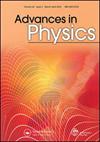Spin currents and spin superfluidity
IF 13.8
1区 物理与天体物理
Q1 PHYSICS, CONDENSED MATTER
引用次数: 166
Abstract
The present review analyses and compares various types of dissipationless spin transport: (1) Superfluid transport, when the spin-current state is a metastable state (a local but not the absolute minimum in the parameter space). (2) Ballistic spin transport, when spin is transported without losses simply because the sources of dissipation are very weak. (3) Equilibrium spin currents, i.e. genuine persistent currents. (4) Spin currents in the spin Hall effect. Since superfluidity is frequently connected with Bose condensation, recent debates about magnon Bose condensation are also reviewed. For any type of spin currents simplest models were chosen for discussion in order to concentrate on concepts rather than the details of numerous models. The various hurdles on the way of using the concept of spin current (absence of the spin-conservation law, ambiguity of spin current definition, etc.) were analysed. The final conclusion is that the spin-current concept can be developed in a fully consistent manner, and is a useful language for the description of various phenomena in spin dynamics.自旋电流和自旋超流动性
本文对各种类型的无耗散自旋输运进行了分析和比较:(1)超流体输运,当自旋电流状态为亚稳态(参数空间中的局部最小值而非绝对最小值)时。(2)弹道自旋输运,由于耗散源非常弱,自旋输运没有损失。(3)平衡自旋电流,即真正的持续电流。(4)自旋霍尔效应中的自旋电流。由于超流体经常与玻色凝聚联系在一起,本文也回顾了最近关于磁振子玻色凝聚的争论。对于任何类型的自旋电流,选择最简单的模型进行讨论,以便集中于概念而不是众多模型的细节。分析了使用自旋电流概念的各种障碍(自旋守恒定律的缺失、自旋电流定义的模糊性等)。最后的结论是,自旋电流的概念可以以完全一致的方式发展,并且是描述自旋动力学中各种现象的有用语言。
本文章由计算机程序翻译,如有差异,请以英文原文为准。
求助全文
约1分钟内获得全文
求助全文
来源期刊

Advances in Physics
物理-物理:凝聚态物理
CiteScore
67.60
自引率
0.00%
发文量
1
期刊介绍:
Advances in Physics publishes authoritative critical reviews by experts on topics of interest and importance to condensed matter physicists. It is intended for motivated readers with a basic knowledge of the journal’s field and aims to draw out the salient points of a reviewed subject from the perspective of the author. The journal''s scope includes condensed matter physics and statistical mechanics: broadly defined to include the overlap with quantum information, cold atoms, soft matter physics and biophysics. Readership: Physicists, materials scientists and physical chemists in universities, industry and research institutes.
 求助内容:
求助内容: 应助结果提醒方式:
应助结果提醒方式:


